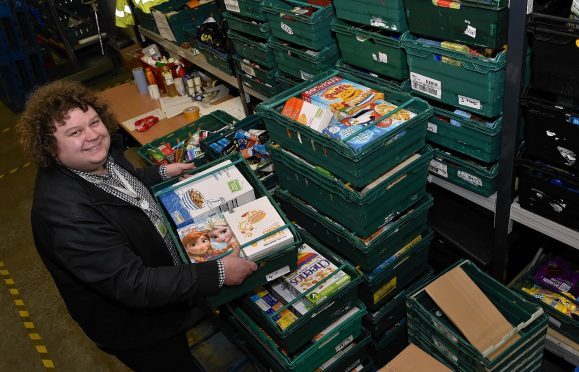Food banks were never intended as anything other than a quick fix.
Many, if not all, were created to help with the sudden and catastrophic drop in household income in the aftermath of the 2008 financial crash. Yet over the last decade, they have become a de facto, essential public service with more and more people becoming dependent on them to feed themselves or their families.
Food poverty is a pressing public health issue. Almost one in ten of us is affected by it in some way. Food poverty also makes it difficult to avoid health problems like diabetes, obesity or similar chronic conditions, and makes coping with pre-existing health conditions more difficult too. The public face of this has emerged in the form of more and more food banks appearing in our communities. So-called ‘food drives’ have become a regular feature in our workplaces, churches, schools and supermarkets, and many of us are trying to do our bit by donating food when we can.
Yet with the best will in world, food banks are not equipped to properly help people with complex health or dietary struggles. They do not and can not consistently stock the type or amount of food needed to manage their conditions.
Diabetes, coeliac disease or kidney disease for example need careful control and monitoring of food intake to avoid developing further complications. Sadly – and ironically – over time, health and social care professionals have referred desperate and ill people to food banks on a regular basis. Food banks are even being set up in hospitals to provide easier access.
A recent study by Robert Gordon University (RGU), which aimed to improve the health and wellbeing of people who may be struggling to manage their long-term health condition due to financial insecurity, showed that the majority of participants in the study were suffering from multiple physical and mental health problems. The study was supported by Community Food Initiatives North East (CFINE) and a local food pantry.
Additionally, a recent national UK study also found that 60-65% of food bank users were affected by one or more health problems, and the Scottish Menu for Change study found that most people using food banks are affected by ill health.
There is a huge social stigma around admitting you are struggling to feed yourself. Again, RGU’s recent study found that none of our participants had or would have thought to discuss their financial circumstances with their GP for a range of reasons, including feelings of shame and embarrassment. Yet, many participants told us that they believed it would help them – and help others – if the health professionals were aware of their financial stress when giving advice about their condition. They just didn’t want to, or think they should, be the person to start that conversation. Importantly, many said they didn’t believe their GP would even be able to help, and that the GP’s time pressures prevented them from doing so. A few also admitted that they did not want to appear poor to others.
There is no doubt that people can manage their health problems better if they have enough money to buy food for themselves. The best type of referral a health professional might actually give in these circumstances is to welfare rights and financial advice services, or to advocacy support services that have the potential to increase the amount of money available to the patient and their families.
Since April this year, CFINE’s financial advice service has helped people in the North East gain access to a total of just over £750,000 in unclaimed social security entitlements. Many of those people are then referred on to other income maximisation agencies, for example, to get help in reducing their energy bills.
All Scottish health care professionals are encouraged to follow the principles of Realistic Medicine, to find out what matters most to patients so that they can deliver care that best fits their needs and situation. This health care policy is not only championed, by our Chief Medical Officer, as the more dignified and compassionate approach to patient care, but one that is considered the most effective for delivering the best possible health outcomes for patients, while also delivering cost savings to the NHS.
Food poverty is a direct consequence of living in poverty. It is the door, locked by stigma, that neither patients nor health care professionals can open on their own. In the same way that food banks have become normalised within society, talking about and understanding the financial challenges of patients within a health care conversation needs to become routine and normal. If we are to help as many people in Scotland as possible to live as well as they might, then we all need to get more realistic about ill health and food poverty.
